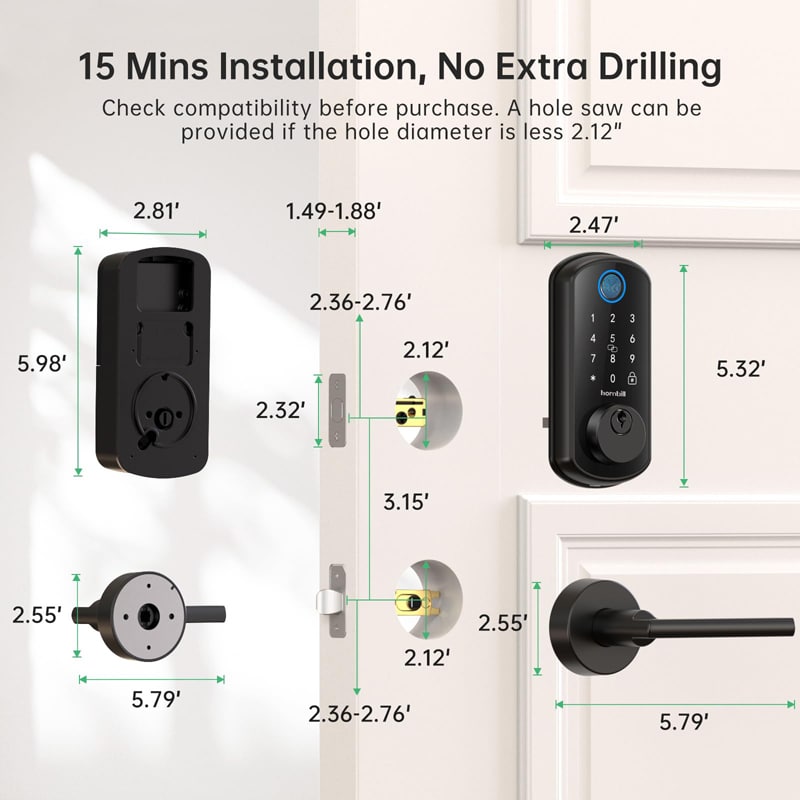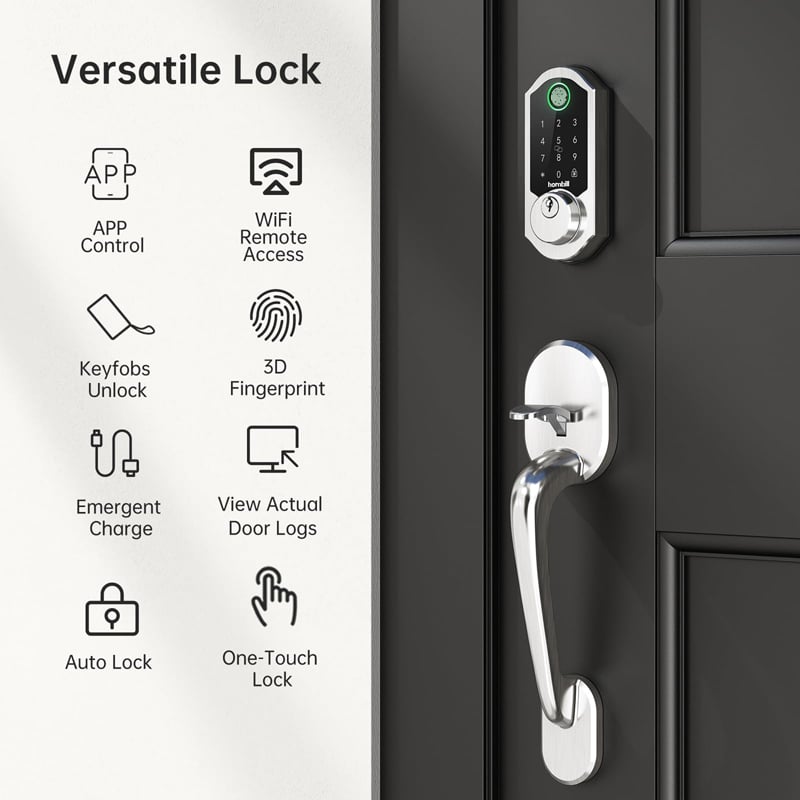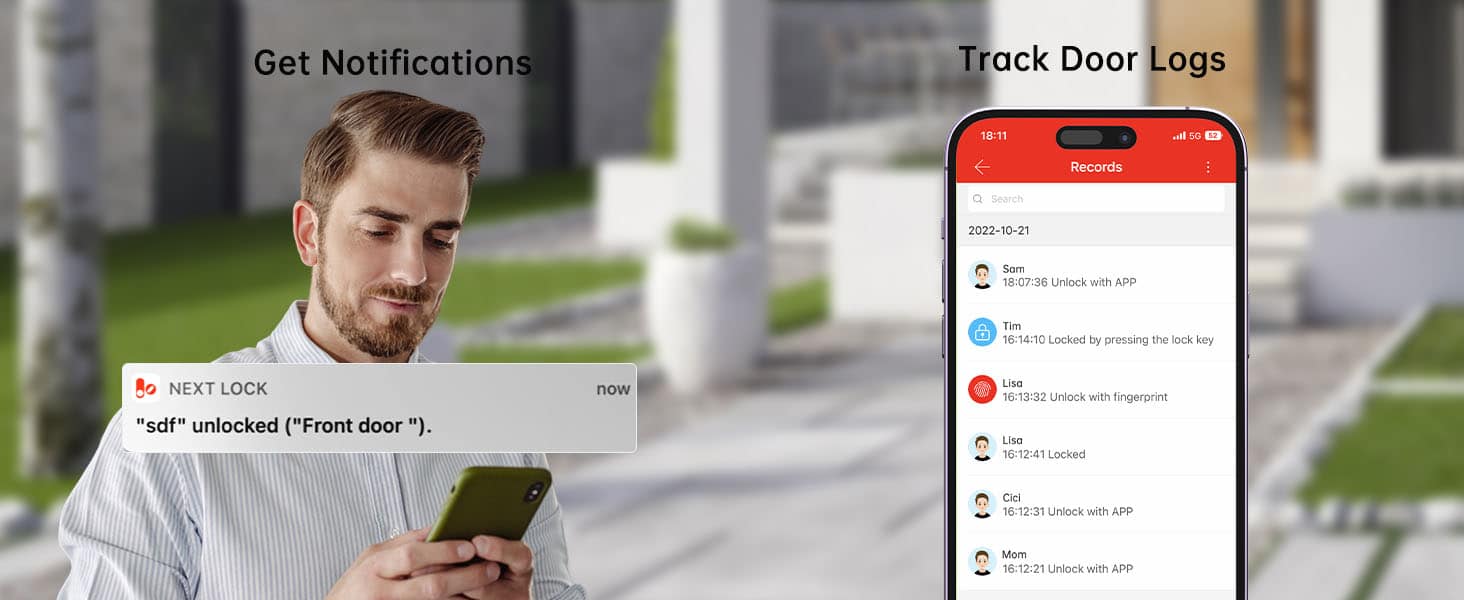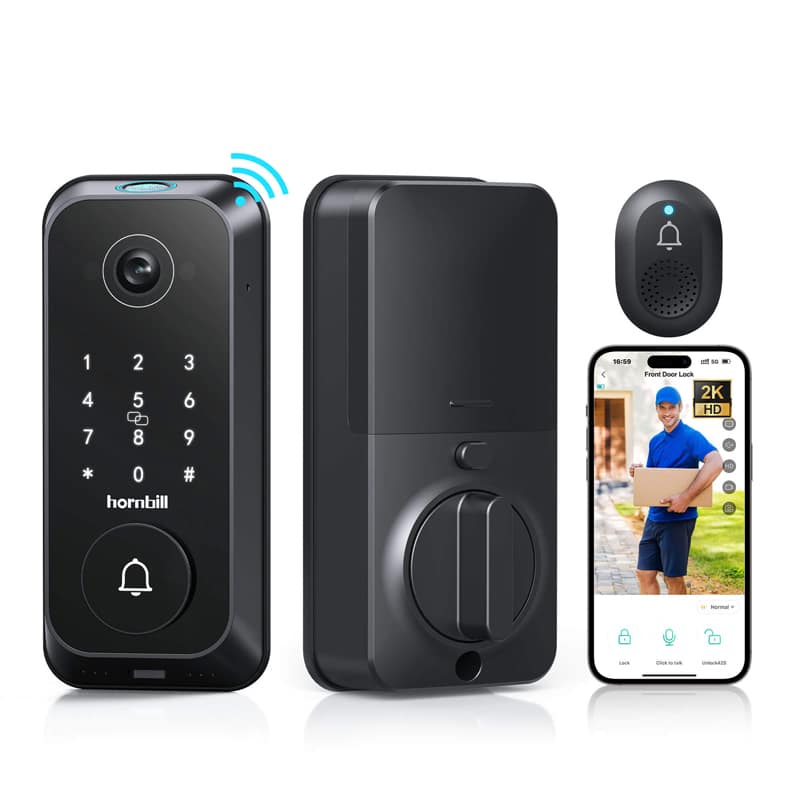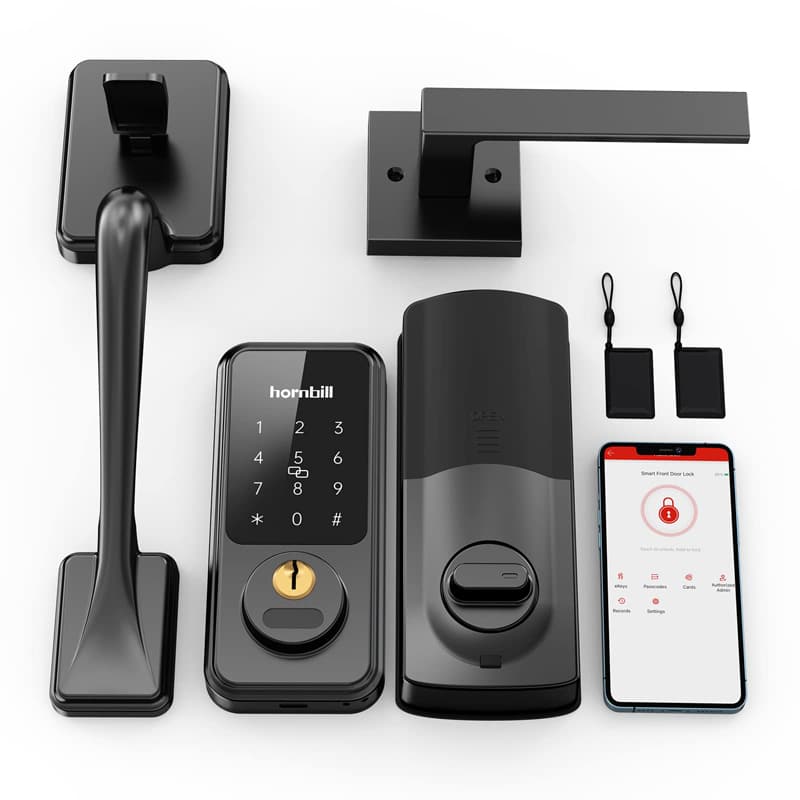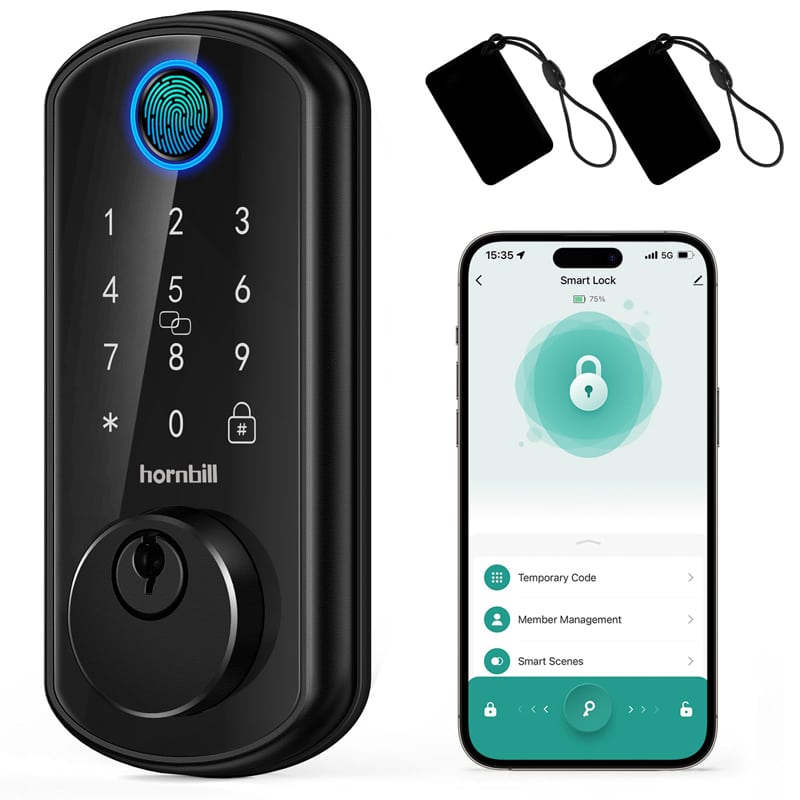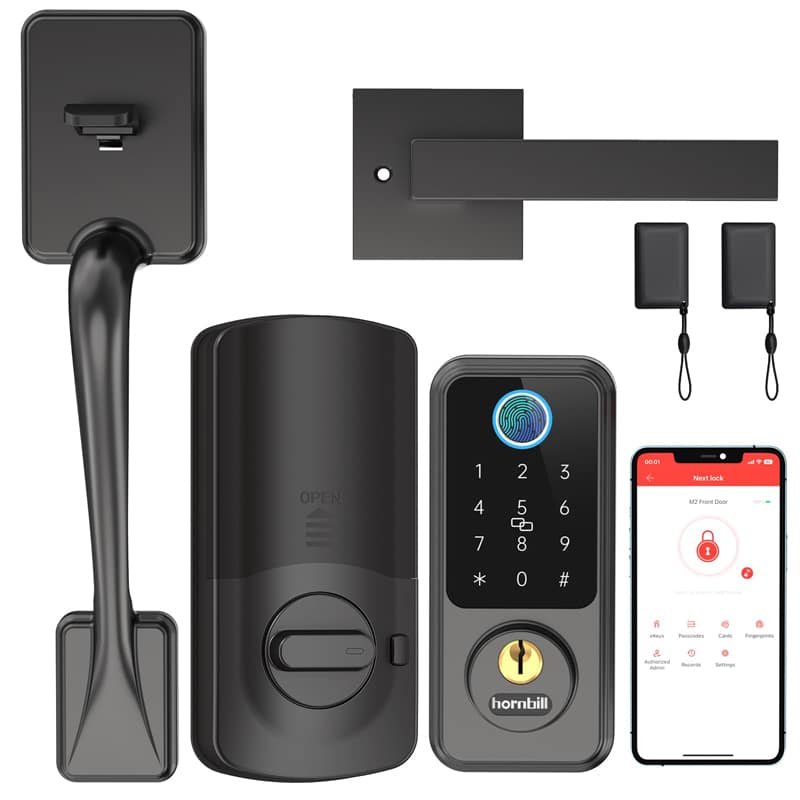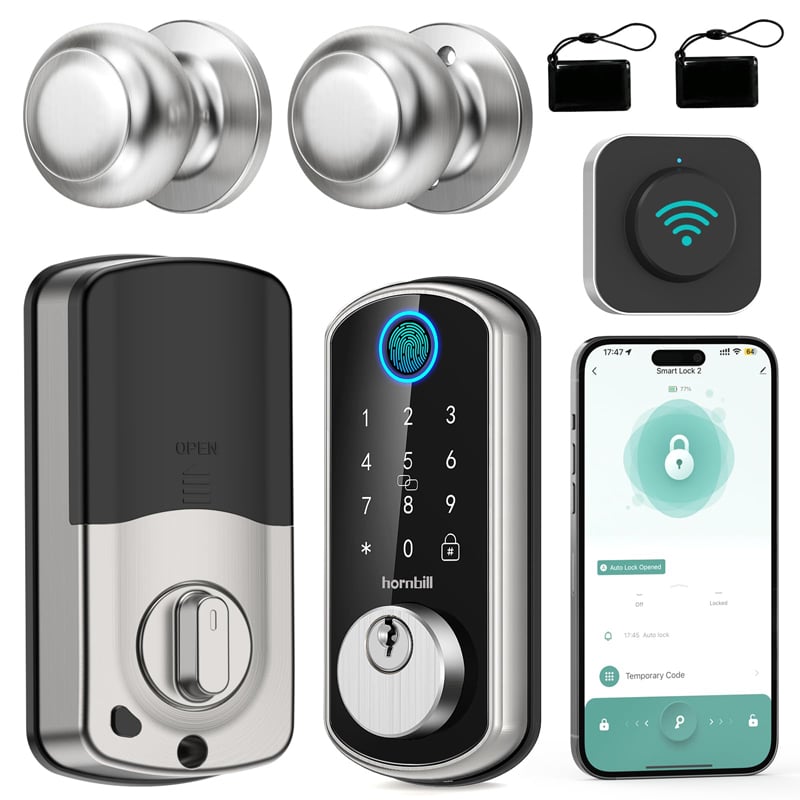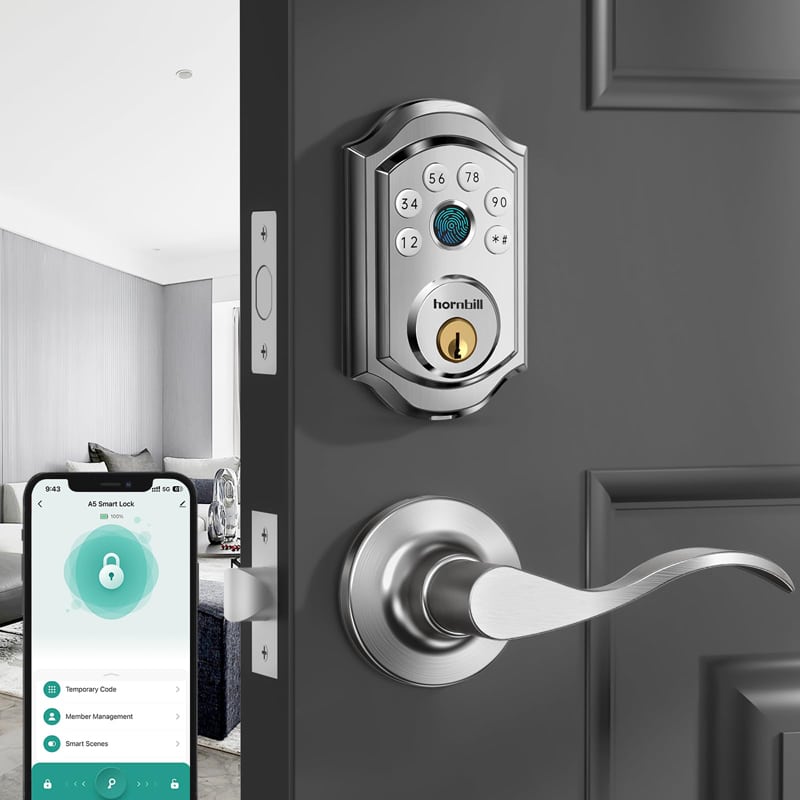As the ubiquity of smart home technology continues to rise, affluent homeowners and tech enthusiasts are turning to wireless door locks for enhanced security and convenience. While these locks offer many advantages over traditional lock-and-key systems, a commonly asked question is whether these innovative devices can be applied universally to all types of doors.
In general, the best wireless door locks are designed to be as versatile as possible to fit a broad range of door types and materials. Most manufacturers offer products that can easily be installed on standard doors made of wood, metal, or composite materials. However, the adaptability of these locks depends on several factors such as the door’s thickness, construction, and existing hardware.
For instance, the thickness of the door can directly influence the suitability of a wireless door lock. Most of these locks are designed to fit doors within a certain thickness range. If your door is unusually thick or thin, it might require additional adjustments or a specially designed model.
Next, the construction of the door itself can also impact the compatibility of a wireless door lock. Doors with solid construction are ideal for these wireless fingerprint lock as they provide a robust foundation for the electronic components. On the other hand, hollow or glass doors may present some challenges for installation and security.
Furthermore, the existing hardware on your door, such as the deadbolt or doorknob setup, can influence the type of wireless lock you can use. Some wireless locks replace your existing deadbolt, whereas others work with the existing hardware. Examining your door’s current setup will help determine the right kind of wireless lock for your needs.
Wireless key card entry systems also need to be considered in line with environmental conditions. Exterior doors exposed to harsh weather *conditions will require locks rated for outdoor use to prevent damage to the electronic components.
In conclusion, while wireless door locks are designed to accommodate a wide range of door types, they may not be universally applicable without some adjustments. Before purchasing, it’s essential to assess your door’s characteristics, consult with professionals, or contact the lock manufacturer to ensure the lock is a suitable match. As technology continues to evolve, we can anticipate even more versatile locks that cater to a broader spectrum of door types and living conditions.
Disclaimer: This article is for informational purposes only and does not endorse or provide guidance for any illegal actions related to bypassing app locks or unauthorized data access. Such activities are punishable by law.

